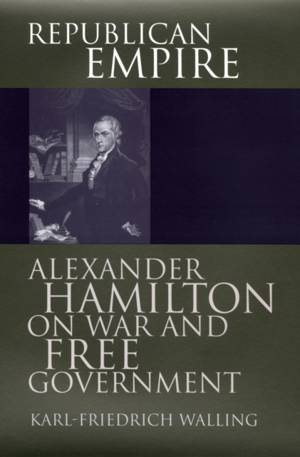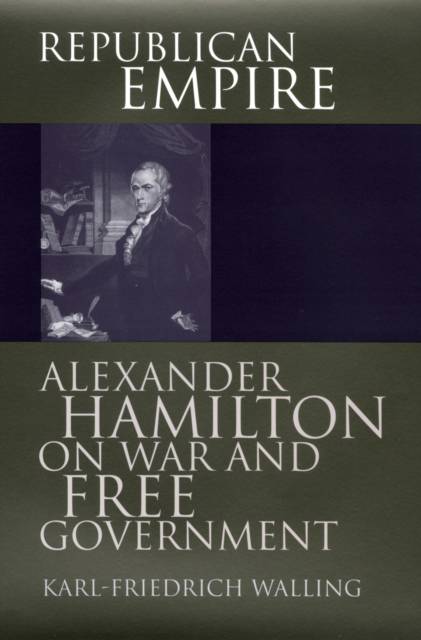
- Retrait gratuit dans votre magasin Club
- 7.000.000 titres dans notre catalogue
- Payer en toute sécurité
- Toujours un magasin près de chez vous
- Retrait gratuit dans votre magasin Club
- 7.000.0000 titres dans notre catalogue
- Payer en toute sécurité
- Toujours un magasin près de chez vous
69,45 €
+ 138 points
Description
The republics of Greece and Rome proved incapable of waging war effectively and remaining free at the same time. The record of modern republics is not much more encouraging. How, then, did the United States manage to emerge victorious from the world wars of this century, including the Cold War, and still retain its fundamental liberties? For Karl-Friedrich Walling, this unprecedented accomplishment was the work of many hands and many generations, but of Alexander Hamilton especially. No Founder thought more about the theory and practice of modern war and free government. None supplied advice of more enduring relevance to statesmen faced with the responsibility of providing for the common defense while securing the blessings of liberty to their posterity. Hamilton's strategic sobriety led many of his contemporaries to view him as an American Caesar, but this revisionist account calls the conventional "militarist" interpretation of Hamilton into question. Hamilton sought to unite the strength necessary for war with the restraint required by the rule of law, popular consent, and individual rights. In the process, he helped found something new, the world's most durable republican empire. Walling constructs a conversation about war and freedom between Hamilton and the Loyalists, the Anti-Federalists, the Jeffersonians, and other Federalists. Instead of pitting Hamilton's virtues against his opponents' vices (or vice versa), Walling pits Hamilton's virtue of responsibility against the revolutionary virtue of vigilance, a quarrel he believes is inherent to American party government. By reexamining that quarrel in light of the necessities of war and the requirements of liberty, Walling has written the most balanced and moving account of Hamilton so far.
Spécifications
Parties prenantes
- Auteur(s) :
- Editeur:
Contenu
- Nombre de pages :
- 368
- Langue:
- Anglais
- Collection :
Caractéristiques
- EAN:
- 9780700609703
- Date de parution :
- 02-09-99
- Format:
- Livre relié
- Format numérique:
- Genaaid
- Dimensions :
- 158 mm x 237 mm
- Poids :
- 721 g

Les avis
Nous publions uniquement les avis qui respectent les conditions requises. Consultez nos conditions pour les avis.






